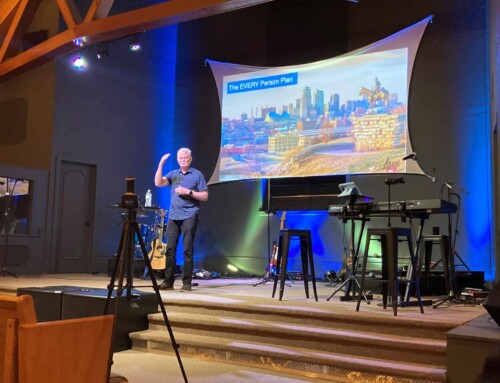Are You Prepared for Retirement, Pastor? (Part 1)
Gregg Boll: Director of Missions
If you think this question is none of my business, then skip to the next article. If you think retirement is an unbiblical concept and you intend to work as many years as your health will allow, you should still read this. I am one of those guys who does not sit well and know that I would grow bored within a month of retiring completely from some kind of meaningful work. However, there are a few realities that must be faced. One, you and I will become less desirable as an employee somewhere out in the future. Secondly, you may not always wish to labor at the level of intensity and time investment you are currently working. And, lastly, whether you work into your retirement years or not, you will still need a stream of income into your golden years for you and your wife. So, perhaps, a better title for this article than the one above might be, “Are You Living and Planning Today in Such a Way that is Preparing You Financially for the Final Chapter of Your Life?”
A part of what I feel called to do is to help pastors begin well, serve well, and finish well! These next two articles deal with what it means to finish well. It’s a fair question to ask if you are ready for your retirement years and one that living in denial isn’t going to help in the least. When it comes to retirement and personal finances, truth and facts are our friends! Time is not! Decisions we make, or fail to make today, result in future opportunities either secured or lost.
Regarding the question of your readiness for the retirement years, here are some sobering statistics from Guidestone, Southern Baptist’s Retirement Agency:
- The average age that pastors enroll in some kind of retirement plan, annuity, etc. is age 40.
- 69% of pastors expect to retire from the work force at 65 but only 34% stay that long.
- 50% of pastors are not confident they will have enough to retire comfortably.
- Retired pastors at age 65 have a median/average balance of $74,800 in their retirement accounts.
- 34% of retired ministers who are 65 or older have a total household savings for retirement of less than $50,000.
- Half of retired ministers have a home loan with 20 or more years left on the loan.
- 16% of pastors never expect to retire due to limited financial resources.
That is the reality, and you can determine where you fit in the mix, but you don’t need statistics, you need answers to questions like:
How much is enough equity with which to retire?
What monthly/annual income will I need to live comfortably?
How will I know if I’m ready to retire?
I like things simple so here’s how I would answer:
Do you have a plan? You may need professional help with this if you don’t consider yourself especially savvy in money issues. Guidestone is Southern Baptist’s retirement agency and they have been around for over 100 years serving ministers and non-profits workers. The Missouri Baptist Foundation also offers expertise in making wise financial decisions for retirement. Closer to home, Steve Cox of Providence Financial Advisors and Ron Finke of Stewardship Capital are excellent at helping you with a long-range financial plan.
How much are you saving or investing in an annuity, 403b or other income producing investment? The rule of thumb suggested is for you to invest at least 15% of your income into some kind of retirement account.
When should I start paying into a 403b or other retirement/investment account? As soon as you can. Albert Einstein was asked in a science symposium once what was the most powerful force in the universe. Some thought he would say a sun, quasar, black hole, or other celestial body. His answer: compound interest. Compounding interest either works against you in this life (debt, loans) or it works for you (investment, appreciation, loans to others). Someone has said that there are two good times to plant an oak tree: thirty years ago, or today. If you missed putting something in an investment 30 years ago, today is still your best option. Every day afterward is less desirable. Get started. Given the longevity of the average American’s life, you still have more time than you think to get the power of compound interest working for you.
How much will I need during my retirement years to live comfortably? The rule of thumb is that you will need 70%-85% of your last working year’s income before retiring. So, if you and your wife have lived on a combined income of $100,000 and you want to live at a similar standard of living in retirement, you will need to plan to have $70,000 to $85,000 in income in retirement from all sources, annuity, social security, 401 or 403’s, pensions, etc. Some will determine that they need to work part time in retirement to maintain the standard of living they desire.
In next month’s article, I will discuss:
How to encourage your church to set up your salary package that helps you most over the long haul, i.e., salary and benefits approach vs. the lump sum approach.
How to know what salary you should make based on your church’s ability and resources and how to help the church compensate you accordingly. I’ll show you some S.B.C. salary calculators that give you and the church a baseline for a fair salary. We’ll discuss how to get your church to do an annual review of the pastor’s salary and how to ask for a raise. I’ll also show you how to keep getting the housing allowance deduction even after retiring. Finally, I’ll show you some basic financial goals to have that will help you retire comfortably and even be able to continue supporting ministries that are dear to your heart until death and beyond.




